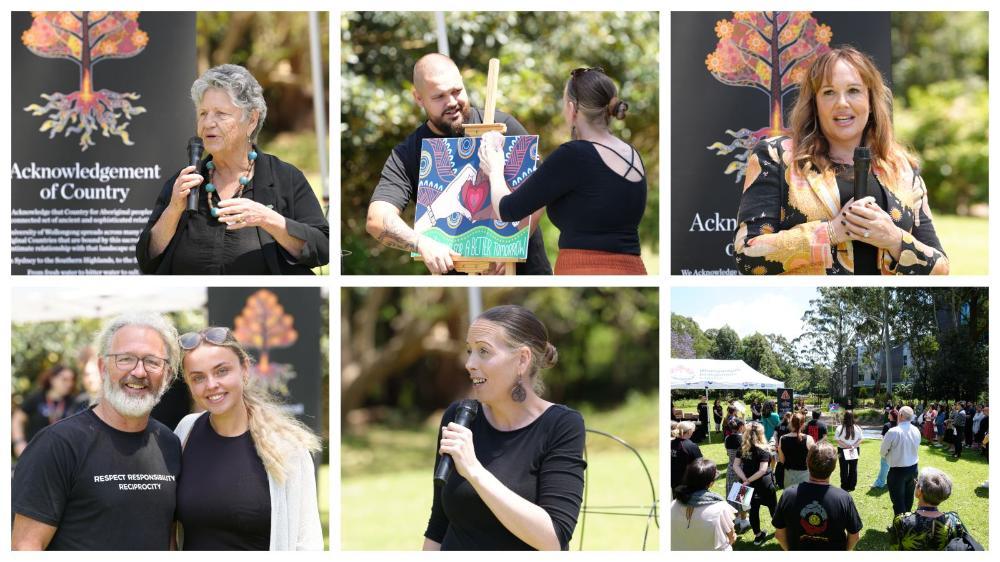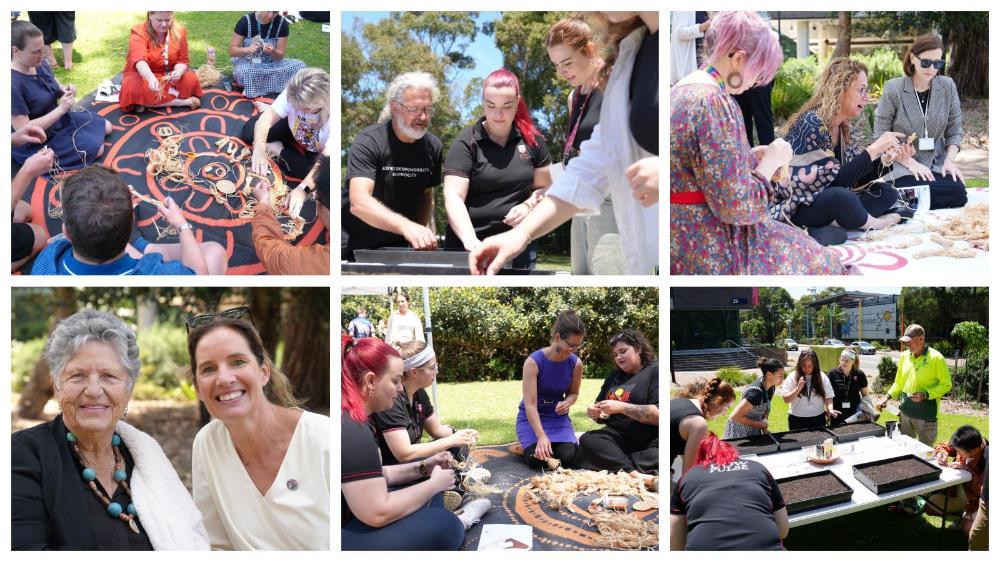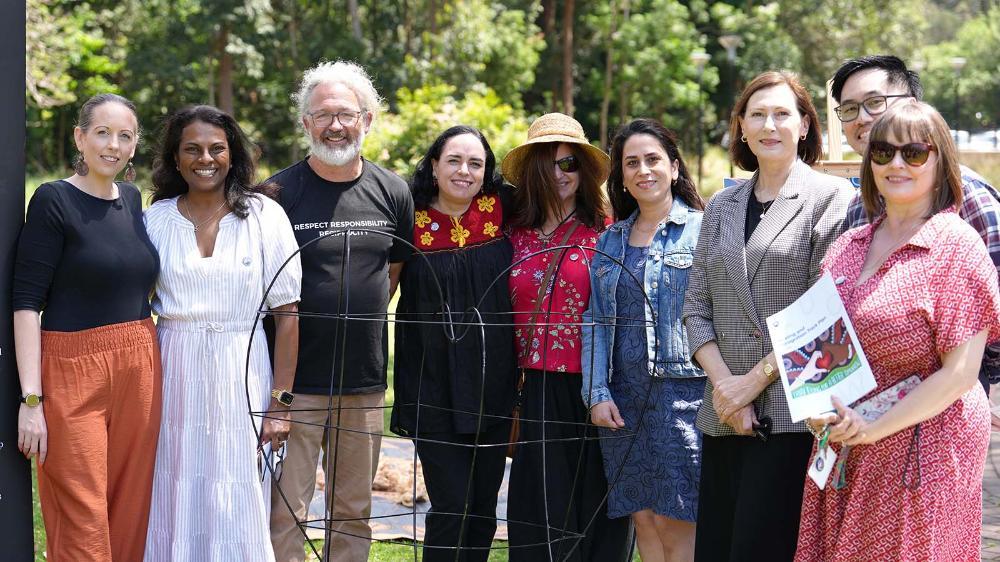November 1, 2024
A new path forward to healing and truth telling
In the aftermath of the Voice to Parliament referendum, UOW is prioritising healing and truth telling on its journey to reconciliation
The University of Wollongong launched its inaugural Healing and Recognition Track (HART) plan on Wednesday 29 October. The plan implements a whole of university approach to Indigenous advancement and reflects the commitment and drive within UOW to focus on solutions, strengths, positive narratives and to celebrate success.
The HART plan was developed by UOW’s Indigenous Strategy Unit after reflecting deeply on the impact of the 2023 referendum on an Indigenous Voice to Parliament and what the path forward should be for an education institution genuinely committed to meaningful action.
While reconciliation remains the long-term goal, the HART plan sees UOW re-focus its efforts on truth-telling and healing. It is the first plan of its kind at an Australian university and has been endorsed by Reconciliation Australia.
UOW Vice-President (Indigenous Strategy and Engagement) Jaymee Beveridge said the HART plan aimed to bring about real transformative change and create an environment where Indigenous ways of knowing, being and doing are woven into the daily life of the University.
“The aftermath of the referendum saw individuals, community and our local allies hurting, feeling disbelief. In the University of Wollongong’s Indigenous Strategy Unit, we saw this as a responsibility and an opportunity to heal through education,” Ms Beveridge said.
“To reach the goals of those who have championed reconciliation for decades, we need to focus on healing and truth telling.
“The Healing and Recognition Track will call to action change that is needed. The Indigenous Strategy Unit will continue to facilitate systemic change across the University including strategy, research, teaching and learning, governance, and business practices.

“The movement to healing and recognition and thus truth telling, is the track we see to opening minds, closing wounds and action for a better tomorrow.
“Ultimately, in an ideal and well-informed Australia, reconciliation is still a desired destination but pragmatically the Healing and Recognition Track holds the coordinates for greater impact for our immediate journey.”
UOW Interim Vice-Chancellor and President Professor John Dewar said the HART plan provides a road map for the implementation of a whole of university approach to Indigenous advancement.
“UOW’s Healing and Recognition Track plan is an affirmation of the history, rights, sovereignty, strength, voice and resilience of Aboriginal and Torres Strait Islander peoples and cultures,” Professor Dewar said.
“It empowers the University to deliver on our commitment to healing and recognition through clear and tangible ‘Tracks’ that reflect the voices of our Indigenous and non-Indigenous students, staff and communities.
“Through centring Indigenous perspectives and priorities, the HART guide will us to create a more inclusive, equitable, and sustainable future for all.”

In a message in the HART plan, Reconciliation Australia Chief Executive Officer Karen Mundine welcomed UOW’s innovative approach.
“On behalf of Reconciliation Australia, I commend UOW’s thoughtful commitment to truth-telling, healing and reconciliation through its HART plan and ongoing participation in the RAP program. I look forward to following its journey and progress as it charts new paths in this space,” Ms Mundine said.
The HART plan reflects the many voices of Indigenous peoples. It was written by and with Indigenous peoples. The Indigenous Strategy Unit were committed to actively engaging with Indigenous staff, students, and community members throughout the planning process, seeking input, feedback, and guidance every step of the way.
The HART plan highlights seven priority areas that reflect the core functions of the University – business, cultural safety, campuses and country, community and industry engagement, education, teaching and learning, and research – and includes calls to action for each.
Each priority area includes a number of “Tracks” that will guide and enable the University to deliver on its commitment to healing and recognition. Each Track includes tangible and measurable results and a timeframe for delivery.

:format(jpg)/prod01/channel_3/assets/media-centre/HART-art-work3-1600X900-499X281.jpg)